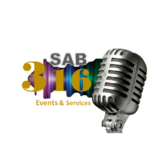The Rise of Student-Driven Encyclopedias: Transforming Understanding Landscapes
In the ever-evolving realm of education and learning, where info moves perfectly and accessibility to expertise is only a click away, student-driven encyclopedias are becoming a vibrant device in the understanding process.

These platforms not just provide trainees with a database of details but additionally motivate them to add, modify, and curate content, promoting a collective and interactive discovering setting.
As instructional paradigms change in the direction of more participatory and comprehensive designs, the concept of student-driven encyclopedias personifies this transformation. These systems empower students to become energetic individuals in expertise production, bridging the void in between conventional book knowing and modern-day electronic resources.
The Idea of Student-Driven Encyclopedias
Student-driven encyclopedias are digital platforms where students collectively gather, validate, and disseminate info on a wide range of topics. Unlike standard encyclopedias, which are often created by professionals, these platforms utilize the joint efforts of students to produce a comprehensive body of knowledge.

At their core, student-driven encyclopedias are developed to grow critical thinking, study skills, and digital proficiency among pupils. By engaging in the procedure of web content development, pupils learn to navigate and evaluate details seriously, abilities that are necessary in today’s information-rich culture.
In addition, these systems serve as an area for students to explore their interests and share their proficiency. This autonomous approach to expertise creation makes sure that a varied series of point of views and voices are stood for, enriching the discovering experience for all participants.
- Students get hands-on experience in research and material development.
- Urges collaboration and peer interaction.
- Promotes a deeper understanding of subject.
- Fosters inclusivity and variety in understanding representation.
In essence, student-driven encyclopedias change pupils from easy recipients of info into energetic contributors, instilling a sense of ownership and obligation in their educational journey.
Benefits of Student-Driven Encyclopedias
Among the principal benefits of student-driven encyclopedias is the development of vital 21st-century skills. As students take part in the procedure of content creation, they hone their essential reasoning, electronic literacy, and interaction skills, all of which are critical in today’s interconnected world.
In addition, these platforms encourage a joint understanding atmosphere, where trainees can collaborate to verify details, dispute various point of views, and co-edit write-ups. This peer-to-peer interaction not only improves learning end results yet additionally fosters a feeling of area and shared respect amongst trainees.
Moreover, student-driven encyclopedias offer a system for showcasing pupil job. As students add to the encyclopedia, they construct a portfolio of their research and writing, which can be indispensable for more scholastic and professional quests.
Challenges and Limitations

Despite the numerous advantages, student-driven encyclopedias additionally encounter specific challenges. Guaranteeing the accuracy and dependability of details is critical, as these platforms depend on payments from pupils that might not yet possess expert-level expertise.
- Keeping content high quality and accuracy.
- Providing sufficient supervision and support.
- Ensuring fair gain access to and inclusivity.
To alleviate these difficulties, numerous student-driven encyclopedias implement a system of checks and balances, where material is assessed by educators or specialists prior to publication. This makes sure that the details offered is both precise and reliable, promoting the integrity of the system.
The Future of Student-Driven Encyclopedias
As technology remains to advancement and the landscape of education advances, the possibility for student-driven encyclopedias is substantial. These platforms have the capability to not just complement standard educational resources yet also redefine the way knowledge is acquired and shared.
In the future, we may see student-driven encyclopedias incorporating more advanced innovations such as artificial intelligence and machine learning to enhance material curation and customization. Additionally, they might broaden beyond textual info to include multimedia web content, supplying a more immersive knowledge exchange platform learning experience.
Equipping the Next Generation
Student-driven encyclopedias hold the guarantee of equipping the next generation of learners. By putting pupils at the helm of knowledge development, these platforms urge lifelong discovering, interest, and intellectual self-reliance.
In conclusion, as instructional systems continue to innovate, student-driven encyclopedias stand as a testimony to the power of partnership and the importance of student firm in the understanding procedure. By welcoming these platforms, we unlock to a more comprehensive, interesting, and vibrant instructional experience for all.
